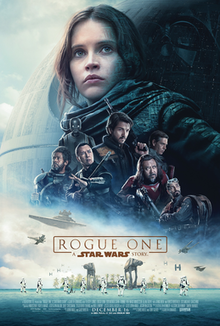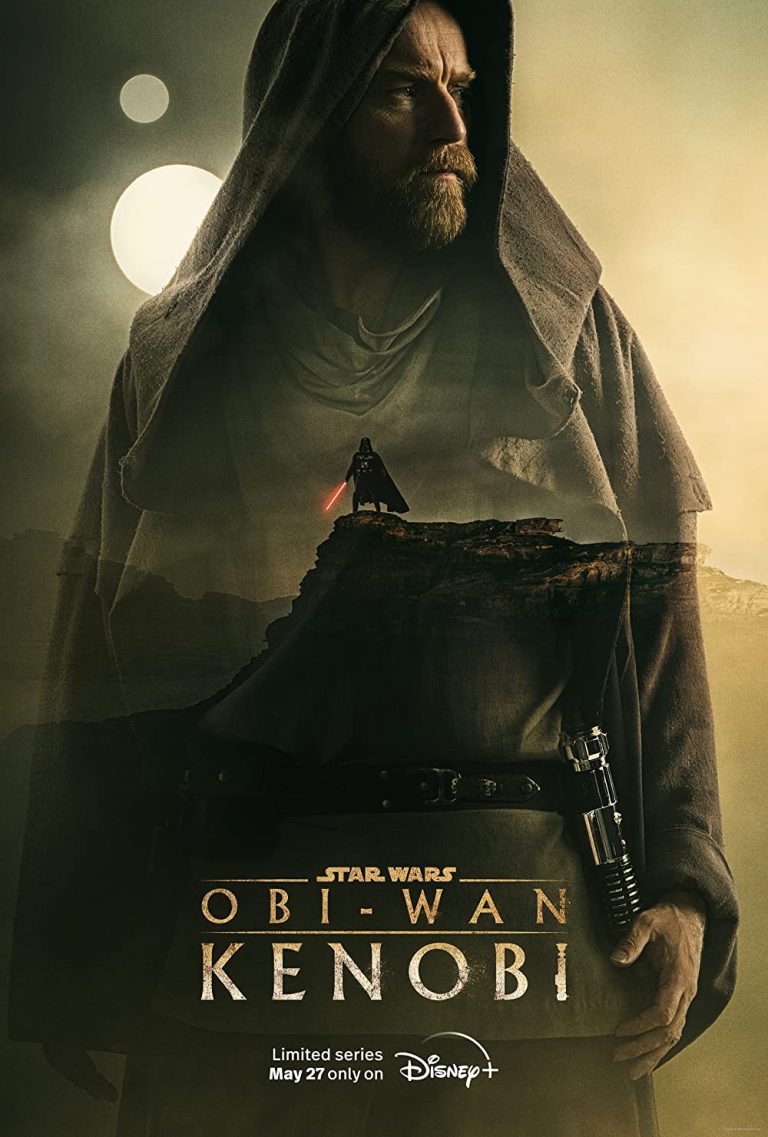Is Star Wars A Film Series Or A Multimedia Franchise?
Star Wars, a beloved and iconic franchise that has captured the hearts of millions around the world. But have you ever wondered if it’s just a film series or something more? Is Star Wars simply a collection of movies, or does it transcend the boundaries of cinema to become a multimedia franchise? Let’s dive into this fascinating topic and explore the multi-dimensional world of Star Wars.
When we think of Star Wars, the first thing that comes to mind is the incredible saga that has unfolded on the silver screen. The epic battles, memorable characters, and captivating storylines have made the films a cultural phenomenon. From the original trilogy that started it all to the prequels and the sequels, Star Wars has become synonymous with blockbuster filmmaking. But it doesn’t stop there. Star Wars has expanded its reach beyond the big screen, becoming a multimedia franchise that encompasses various forms of entertainment.
Through books, comic books, video games, TV shows, and merchandise, Star Wars has created a vast universe that fans can explore and immerse themselves in. Whether you’re reading a novel set in a galaxy far, far away, playing a lightsaber-wielding Jedi in a video game, or collecting action figures of your favorite characters, Star Wars offers a wealth of experiences beyond the movies. This integration of different mediums has transformed Star Wars into a multimedia franchise that caters to fans of all ages and interests.
In conclusion, Star Wars is more than just a film series. It has evolved into a multimedia franchise that spans across various forms of entertainment. From the silver screen to books, video games, and merchandise, Star Wars has created a universe that continues to captivate and engage audiences worldwide. So the next time you think of Star Wars, remember that it’s not just about the movies, but a rich and expansive galaxy waiting to be explored. May the Force be with you!

Is Star Wars a Film Series or a Multimedia Franchise?
Star Wars is undoubtedly one of the most iconic and influential franchises in the history of popular culture. It has captured the hearts and imaginations of millions of fans worldwide, spawning numerous films, TV shows, books, comics, games, and merchandise. However, the question remains: Is Star Wars primarily a film series or a multimedia franchise? Let’s delve deeper into this debate and explore the various aspects of Star Wars that contribute to its status.
The Film Series: A Cultural Phenomenon
When we think of Star Wars, the first thing that often comes to mind is the original film trilogy directed by George Lucas. Released between 1977 and 1983, these films revolutionized the science fiction genre and became a cultural phenomenon. With iconic characters like Luke Skywalker, Princess Leia, Han Solo, and Darth Vader, the original trilogy captured the imagination of audiences around the world. The success of these films laid the foundation for Star Wars as a film series.
The prequel trilogy, released between 1999 and 2005, further expanded the Star Wars universe, exploring the backstory leading up to the events of the original trilogy. Despite mixed reactions from fans and critics, these films introduced new characters and expanded the mythology of the franchise. Finally, the sequel trilogy, which concluded in 2019, continued the saga with a new generation of characters while paying homage to the original films. The films in the Star Wars series have been major box office successes, generating billions of dollars in revenue and cementing Star Wars as a significant force in the film industry.
The Expanded Universe: Beyond the Films
While the Star Wars films form the core of the franchise, Star Wars has evolved into a multimedia phenomenon that extends far beyond the silver screen. The expanded universe of Star Wars encompasses a vast array of additional content, including novels, comics, animated TV shows, video games, and more. These mediums have allowed fans to explore the Star Wars universe in greater depth, expanding the lore and introducing new characters and storylines.
The Star Wars novels, written by various authors, have provided fans with a wealth of stories set in the Star Wars universe. Many of these novels have become bestsellers and have further enriched the mythology of the franchise. In addition, the Star Wars comics have allowed artists and writers to explore different aspects of the universe and tell unique stories that complement the films.
The Star Wars animated TV shows, such as “The Clone Wars” and “Rebels,” have been critically acclaimed and have attracted a dedicated fan base. These shows delve into important events and characters that are not explored in the films, providing fans with a deeper understanding of the Star Wars universe. Furthermore, the Star Wars video games have allowed players to immerse themselves in the world of Star Wars, experiencing epic adventures and engaging in lightsaber duels or space battles.
In recent years, the acquisition of Lucasfilm by Disney has further expanded the multimedia aspect of Star Wars. The creation of new films, TV shows, and streaming content has ensured that Star Wars remains a prominent presence in popular culture.
The Debate: Film Series or Multimedia Franchise?
So, is Star Wars primarily a film series or a multimedia franchise? The answer lies in the integration of both aspects. While the films serve as the foundation and main attraction of the franchise, the expanded universe and multimedia content have played a crucial role in shaping the Star Wars phenomenon. The films provide the central narrative and iconic characters, while the additional content allows fans to dive deeper into the universe, explore new stories, and connect with the franchise on a more personal level.
The success of Star Wars as a film series has undoubtedly paved the way for its expansion into various multimedia platforms. However, it is the combination of these elements that has allowed Star Wars to transcend its status as a mere film series and become a complete and immersive universe that captivates fans across generations.
In conclusion, Star Wars is both a film series and a multimedia franchise. The films may be the beating heart of the franchise, but the expanded universe, including novels, comics, TV shows, and video games, has contributed significantly to the enduring popularity and cultural impact of Star Wars. Whether you’re a fan of the films or immerse yourself in the extended universe, Star Wars offers a rich and expansive world that continues to captivate audiences worldwide.
Key Takeaways: Is Star Wars a film series or a multimedia franchise?
- Star Wars is a film series that started with the release of the first movie, “Star Wars: Episode IV – A New Hope,” in 1977.
- However, it has expanded beyond just films and has become a multimedia franchise with various forms of media, including TV shows, books, comics, video games, and merchandise.
- The Star Wars franchise has a vast and interconnected universe with multiple characters, planets, and stories that span different mediums.
- While the films are the core of the franchise, the expanded universe allows fans to explore and engage with the Star Wars world in different ways.
- Whether you’re a fan of the movies, TV shows, books, or games, Star Wars offers a rich and diverse experience for fans of all ages.
Frequently Asked Questions
Question 1: How does Star Wars qualify as a film series?
Star Wars is widely recognized as a film series due to its origins in the original trilogy released in the late 1970s and early 1980s. The original films, including “Star Wars: Episode IV – A New Hope,” “Star Wars: Episode V – The Empire Strikes Back,” and “Star Wars: Episode VI – Return of the Jedi,” laid the foundation for the franchise and introduced iconic characters such as Luke Skywalker, Princess Leia, and Darth Vader.
Subsequently, the franchise expanded with prequels, sequels, and spin-offs, all released as films. This continuity of storytelling through movies solidifies Star Wars as a film series, capturing the imagination of audiences worldwide through its epic space opera narrative and groundbreaking visual effects.
Question 2: What makes Star Wars a multimedia franchise?
While Star Wars initially gained popularity as a film series, it has evolved into a multimedia franchise encompassing various forms of entertainment beyond movies. The franchise has successfully expanded its reach through television shows, books, comics, video games, and merchandise, creating an immersive universe that extends beyond the big screen.
Star Wars’ multimedia approach allows fans to engage with the franchise in different ways, whether through watching animated series like “Star Wars: The Clone Wars” or exploring the vast Star Wars Expanded Universe through novels and comic books. This multi-platform presence demonstrates the franchise’s ability to captivate audiences across different mediums.
Question 3: How do the films and other media components of Star Wars complement each other?
The films serve as the cornerstone of the Star Wars franchise, providing the main narrative arcs and introducing key characters and events. However, the expanded universe created through other media components enriches and enhances the overall Star Wars experience.
Television shows like “The Mandalorian” offer new perspectives and storylines set within the Star Wars universe, while books and comics delve deeper into the lore and provide additional character development. Video games allow fans to actively participate in Star Wars adventures, immersing themselves in interactive storytelling. Together, these media components create a cohesive universe that appeals to a wide range of fans.
Question 4: Can someone enjoy Star Wars without engaging with all the different media?
Absolutely! While the expanded universe and multimedia nature of Star Wars offer additional layers of storytelling and world-building, the films themselves provide a complete and satisfying experience. Each movie can be enjoyed on its own, as they offer self-contained narratives within the larger Star Wars saga.
Engaging with other media components can enhance one’s understanding and appreciation of the franchise, but it is not necessary to enjoy and understand the central story. Whether someone chooses to solely watch the films or dive into the vast array of additional content, Star Wars offers something for everyone.
Question 5: How has Star Wars influenced popular culture as a multimedia franchise?
Star Wars has left an indelible mark on popular culture, partly due to its status as a multimedia franchise. The iconic characters, memorable quotes, and epic battles have permeated society, becoming recognizable symbols even for those who may not have watched the films.
Moreover, Star Wars’ expansion into various media platforms has allowed fans to connect with the franchise on a deeper level, fostering a dedicated and passionate fanbase. The franchise’s influence can be seen in countless references, parodies, and homages across different forms of entertainment, solidifying its status as a cultural phenomenon.
ALL STAR WARS CANON MOVIES, SHOWS, & VIDEO GAMES in Chronological Order! BEST Star Wars Watch Order!
Final Summary: Is Star Wars a Film Series or a Multimedia Franchise?
After exploring the vast universe of Star Wars, it is clear that it is much more than just a film series. While it all began with the groundbreaking film by George Lucas, Star Wars has evolved into a full-fledged multimedia franchise that encompasses movies, TV shows, books, comics, video games, and merchandise. It has become a cultural phenomenon that has captured the hearts and imaginations of fans worldwide.
From the moment the iconic opening crawl appeared on the big screen, Star Wars became a cinematic experience like no other. The original trilogy laid the foundation for the epic space opera, introducing unforgettable characters like Luke Skywalker, Princess Leia, and Darth Vader. However, the story didn’t end there. With the prequel trilogy and the sequel trilogy, Star Wars expanded its universe and continued to captivate audiences with new adventures and characters.
But Star Wars didn’t stop at the movies. It ventured into television with animated series like “The Clone Wars” and “Rebels,” delving deeper into the lore and expanding the narrative. The franchise also embraced the written word, with countless novels and comics that further explored the vast Star Wars galaxy. And let’s not forget the immersive video games that allowed fans to step into the shoes of their favorite characters and embark on their own heroic journeys.
In conclusion, Star Wars transcends the boundaries of a film series and has become a multimedia franchise that encompasses various mediums. It has become a part of our cultural fabric, captivating audiences of all ages and leaving a lasting impact. Whether you’re a die-hard fan or a casual viewer, Star Wars has something for everyone, making it a truly remarkable and enduring phenomenon. May the Force be with you!




